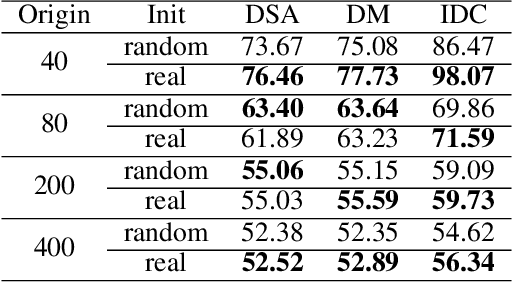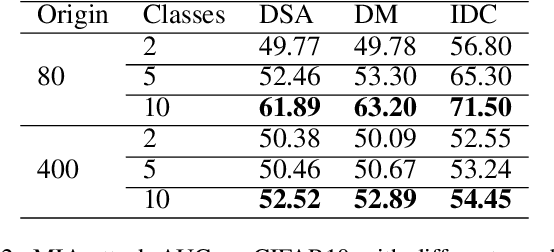A Comprehensive Study on Dataset Distillation: Performance, Privacy, Robustness and Fairness
Paper and Code
May 05, 2023



The aim of dataset distillation is to encode the rich features of an original dataset into a tiny dataset. It is a promising approach to accelerate neural network training and related studies. Different approaches have been proposed to improve the informativeness and generalization performance of distilled images. However, no work has comprehensively analyzed this technique from a security perspective and there is a lack of systematic understanding of potential risks. In this work, we conduct extensive experiments to evaluate current state-of-the-art dataset distillation methods. We successfully use membership inference attacks to show that privacy risks still remain. Our work also demonstrates that dataset distillation can cause varying degrees of impact on model robustness and amplify model unfairness across classes when making predictions. This work offers a large-scale benchmarking framework for dataset distillation evaluation.
 Add to Chrome
Add to Chrome Add to Firefox
Add to Firefox Add to Edge
Add to Edge